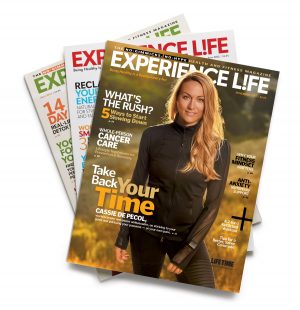This week on The Living Experiment, we’re talking about Friends — not the kind we call “friends” social media, but the real, meaningful, human kind we connect with in person. The kind we care about deeply. The kind we count on for hugs, empathy, perspective, emotional support and fun.
In a world where many of us feel painfully pressed for time, we’re barely connecting with our romantic partners and close family members, much less making time to forge and maintain meaningful connections beyond the walls of our own homes.
So here, we talk about the difference between various levels of friendship intimacy, and how relationships are deepened by time, proximity, shared experiences, vulnerability, and trust.
We explore the essential role friendships play in defining our lives, and how to go about evaluating and evolving the friendships in your life now.
Finally, we offer you some experiments to help you give your own friendships a little more of the energy and attention they deserve.
“Friends” Episode Highlights
-
Dallas deconstructs the word “tribe” — both the controversy and distortion surrounding the word
-
How friendships have tended to become broad and shallow rather than narrow and deep
- The role authenticity and vulnerability play in the formation of friendship
-
The art of making space and energy for your friendships in a distracted, over-scheduled world
-
Pilar shares how living on a communal farm has shaped her ideals around friendship and intentional community
-
The paradox of our wanting more meaningful connections without wanting to make ourselves vulnerable
-
How to evolve the friendships you have, and create the friendships you seek
-
The role of accepting presence and interested, empathetic inquiry in the creation of deeper friendships
-
Pilar describes how she and a friend used a “Genius Pact” to connect around shared interests and goals.


Healthy-Living Wisdom, Delivered to Your Door
Get your discounted print subscription to Experience Life magazine for just $19.95 — and sign up for their free e-newsletters, too!

Share the Love!
Have you told your friends and family about The Living Experiment? If you dig the podcast, please share it! Every recommendation from you means a lot!
We’d also love to have you connect with us on Facebook. Tell us about your experiments, and share your thoughts, stories and reflections there.
Resources
- “The Genius Pact” by Pilar Gerasimo via Experience Life Magazine
- “25 Ways to Be a True Friend” via Tiny Buddha
- “More Social Less Media” by Dallas Hartwig
- “The Anatomy of Trust” by Brene Brown (describing her B.R.A.V.I.N.G. acronym)
- “Overcoming Your Upper Limits” by Gay Hendricks via Experience Life Magazine
PLUS …
- Sign up for The Living Experiment newsletter so you can stay up to date with us, get free gifts, and receive notifications when new episodes are released.
- Subscribe to The Living Experiment on Apple Podcasts to have fresh episodes delivered to your podcast feed each week.